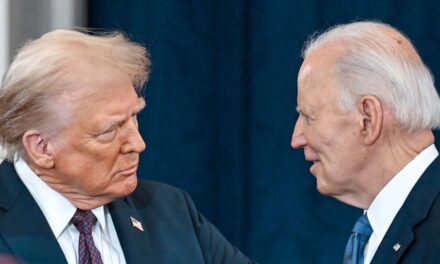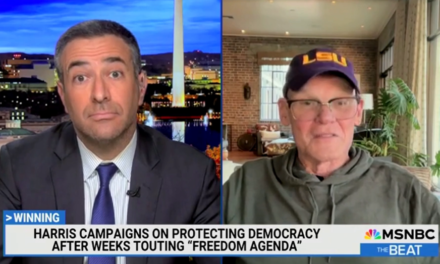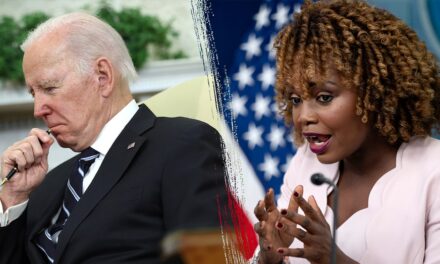In a recent exchange that captured national attention, CNN anchor Dana Bash has taken a stand against former President Donald Trump, asserting that her network does not harbor hatred for the United States. This response comes in light of Trump’s consistent criticism of CNN, which he claims spreads negativity and undermines the country. Bash’s comments highlight an ongoing tension between Trump and media outlets that he perceives as adversarial.
During a segment on CNN, Bash found herself addressing a comment made by Trump during one of his recent rallies. The former president openly accused CNN and other major news outlets of spreading misinformation and fostering a negative perception of America. His rhetoric emphasized a recurring theme he has used since his presidency—portraying the media as a contributor to the problems facing the nation.
In her rebuttal, Bash expressed her disappointment at the former president’s remarks. “CNN does not hate our country,” she stated emphatically. “We hold ourselves to a high standard and strive to provide factual reporting and in-depth analysis.” Her response underscored the role of journalism as an essential pillar of democracy, suggesting that critical examination and questioning of leadership is a fundamental aspect of a healthy society.
Bash continued to underscore the responsibility of media organizations like CNN in informing the public. “We are here to report the truth, even when it’s uncomfortable,” she emphasized. This statement serves as a clarion call to the values of journalistic integrity, echoing sentiments that many journalists share about their duty to scrutinize those in power and offer a platform for diverse opinions.
The exchange isn’t just a simple back-and-forth; it highlights a larger discourse regarding the relationship between political figures and the media. Trump’s broad-brush accusations against outlets like CNN have altered the media landscape in America, leading many supporters to dismiss established news sources in favor of alternatives that align more closely with their beliefs.
This evolving dynamic has serious implications for democracy. As media becomes increasingly polarized, the gap between different news consumption habits grows wider. Bash’s comments are a reminder of the critical functions of the press, particularly in holding leaders accountable and fostering an informed electorate. As the media landscape changes, it remains vital for news organizations to uphold standards that ensure credibility and fairness.
One aspect of this situation is the apparent absence of a shared understanding between some political figures and media outlets. While Trump has leveraged social media platforms to bypass traditional journalism, his rhetoric also paints a picture of a media landscape that is hostile to his supporters. This notion has fostered a sense of division that could have long-term consequences for political discourse in the United States.
Trump’s criticisms have not only been directed toward CNN but extend to many major news organizations. These institutions often face the brunt of accusations that they are out of touch with the values and concerns of the average American. It’s an assertion that resonates among his followers, who often feel alienated by what they believe to be biased reporting. This perception of media bias contributes to a climate of distrust, which makes it harder for outlets to establish credibility across the political spectrum.
In defending CNN, Bash highlights the ethical responsibilities inherent in journalism. She noted, “We have a duty to provide a platform for diverse perspectives, including those that challenge the status quo.” For Bash and many of her colleagues, the role of the media is to serve as a watchdog, ensuring that those in power are held accountable and that the public is informed of the key issues affecting their lives.
This confrontation between Bash and Trump is part of a broader narrative in American journalism, where the lines between opinion and fact continue to blur. As misinformation becomes more prevalent and trust in traditional media fluctuates, journalists are faced with the challenge of reaffirming their commitment to the truth. It raises critical questions about how best to engage with audiences who may feel overlooked or misrepresented by conventional reporting.
Moreover, this exchange illustrates the growing need for media literacy among the public. As various platforms and narratives proliferate, it is crucial for audiences to develop skills that enable them to navigate the complexities of information dissemination. Understanding the difference between opinion pieces, factual news reporting, and sensationalized coverage can empower citizens, fostering a more educated electorate capable of critical thinking and informed decision-making.
While Trump’s critiques of CNN may resonate with a significant portion of the American public, it is essential to remember the fundamental role that journalism plays in maintaining a healthy democracy. Bash’s defense of her network was not just a personal response; it was a broader assertion about the importance of media in society. It highlights the necessity of having outlets that are dedicated to rigorous reporting, free from bias, and committed to presenting a balanced view of events.
In conclusion, the exchange between Dana Bash and Donald Trump serves as a mirror reflecting the tensions at play between politics and the media. It underscores the critical function of journalists as truth-seekers and as defenders of the principles of democracy. While the former president may have his followers who align with his views on the media, it is essential to recognize the complexities involved in news reporting today. Bash’s statement serves as a reminder that, despite challenges, the media continues to be a vital component in the pursuit of truth and accountability in this ever-evolving landscape.
As the nation navigates through various challenges—be they political, social, or economic—the resilience of the press in maintaining its integrity and independence remains paramount. In defending CNN and affirming the necessity of journalistic standards, Dana Bash not only addresses Trump’s comments but also engages with a broader conversation about the critical role of media in shaping the landscape of American democracy.































